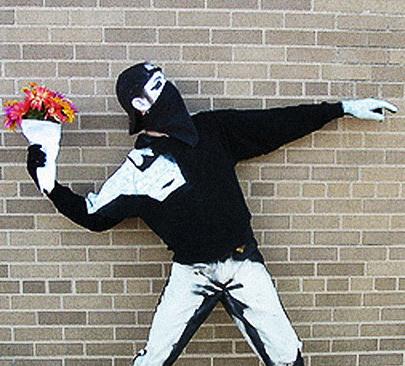The Uses of Aesthetics

12–14 September, 2019
Karlstad University, Sweden
An international interdisciplinary conference organized by the research group for culture studies KuFo (Kulturvetenskapliga forskargruppen) in celebration of KuFo’s ten-year anniversary.
PROGRAM
BOOK OF ABSTRACTS
Registration
You can register for The Uses of Aesthetics using the link below.
Registration fees (excluding 25% VAT)
- Conference fee (includes meals and access to all events):
- Early bird until August 20: SEK 1500
- After August 20: SEK 2000
https://theusesofaesthetics2019.axacoair.se
Practical information about travel and accommodation follows on registration.
At least since the Kantian conceptualization of the aesthetic object as being purposive without a purpose, and of aesthetic judgment as one of disinterested interest, art has been associated with a certain kind of uselessness. Nevertheless, since aesthetic objects, expressions, and practices always emerge, take place in, and travel across cultural and material contexts, they affect their surroundings, influence those contexts, and make a difference. If inherently “useless” in a Kantian sense, works of art and aesthetic expressions and practices may nevertheless be put to all kinds of uses. In other words, these objects, expressions and practices respond to a particular situation, whether this is established at the moment of articulation or that of reception. The history of the arts may thus be considered as the production of a vast cultural archive of objects and aesthetic expressions that are not only preserved but always available for new uses. Such an archive provides us with an infinite supply of possibilities for practices of re-purposing and re-negotiation.
One way to operationalize the cultural archive is through transactions renegotiating different aesthetic objects and expressions through assigning values. Art has always had a difficult relation to values, in the many senses of the word. On the one hand, art is thought to manifest eternal and universal values and the inherently good; on the other hand, art is considered a space for the transgression of norms and the destruction of values. While aesthetic values are often articulated in stark contrast to functional ends, the consumption of use value and the crass prices of the marketplace, artworks have also been used as manifestations of political action, and as objects for economic investment and speculation. Whereas works of art may be accumulated in centralized collections for the public good (in museums) or personal profit (in private collections), performative practices where economic and cultural values are destroyed may constitute aesthetically valuable happenings in themselves.
Multi-session panel: Photography and the method of art. See the panel abstract here.
Keynote speakers
Bernd Herzogenrath
Bernd Herzogenrath is Professor of American Literature and Culture at Goethe University, Frankfurt am Main, Germany. He is the author of An Art of Desire. Reading Paul Auster (Rodopi 2001), An American Body|Politic: A Deleuzian Approach (Dartmouth College Press 2010) and editor of several books – most recently, Sonic Thinking (Bloomsbury 2017) and Film as Philosophy (UMP 2017). At the moment, he is developing the project cinapses: thinking|film that brings together scholars from film studies, philosophy, and the neurosciences (members include Alva Noë and Antonio Damasio). Herzogenrath has an interest in Film, Sound, and Media Studies, Media Philosophy, the convergence of Anarchism and Continental Theory, and on issues of Education and educational practices.
Catherine Spooner
Catherine Spooner is professor of Literature and Culture at Lancaster University, UK. Spooner's research interests incorporate Gothic literature, film, and popular culture, and fashion and costume in literature and film, within the broader spectrum of Victorian and contemporary literature and culture. Her latest book is Post-Millennial Gothic: Comedy, Romance and the Rise of Happy Gothic, published by Bloomsbury in February 2017, and she has previously authored and co-edited several books and contributed to several volumes on the Gothic in literature and beyond. Catherine is currently working on a cultural history of the white dress in Gothic literature and film, and on the cultural afterlife of the Lancashire witches.
Markus Heide
Markus Heide is associate professor of American Studies at the Swedish Institute for North American Studies (SINAS), a subdivision of the Department of English at Uppsala University. He has published books, edited volumes, journal articles, and more, in the areas of cultural studies, American literature and film, Canadian studies, border studies, and ethnic studies. His latest book is the edited volume Hemispheric Encounters: The Early United States in a Transnational Perspective, Peter Lang, 2016.In spring 2018, he was research fellow at the Center for Iberian and Latin American Studies (CILAS) at UC San Diego, funded by a Riksbankens Jubileumsfond Sabbatical, doing research on art and politics at the US-Mexico border.
The Uses of Aesthetics conference is arranged with financial support from Magnus Bergvalls stiftelse.

